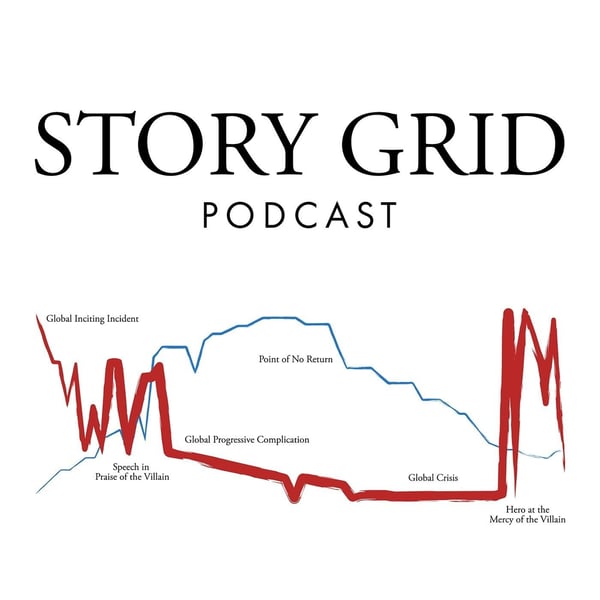Getting the Protagonist Right: When and How to Switch the Main Character
Story Grid Writing Podcast
Shawn Coyne
4.8 • 767 Ratings
🗓️ 4 August 2022
⏱️ 84 minutes
🧾️ Download transcript
Summary
Transcript
Click on a timestamp to play from that location
| 0:00.0 | Hello and welcome to the Storygrid podcast. My name is Tim Graal. I'm your host and I am a writer |
| 0:05.6 | trying to figure out how to tell a story that works. Joining me shortly as Sean Coyne, he's the |
| 0:11.6 | creator and founder of the Story Grid methodology, the author of the book The Story Grid. And along |
| 0:17.1 | with him is Leslie Watts, our editor-in-chief of StoryGrid Publishing, and Daniel Kiyoski, |
| 0:22.4 | the chief academic officer of StoryGrid University. |
| 0:26.0 | Now, before we jump in today, I want to mention that coming up in just a couple weeks, |
| 0:31.8 | we are opening up the registration for the StoryGrid Guild. |
| 0:35.9 | So I hope you've been enjoying this new series we've been |
| 0:39.7 | doing on the podcast, which started with the 624 analysis of eyewitness by Ed McBain. Now, a lot of |
| 0:48.0 | times when you hear this stuff on the podcast and you hear these tools on the podcast, they kind of feel like they |
| 0:54.8 | just came just intact, right? Like we have this 624 analysis. It's these six sections. It's 24 |
| 1:01.4 | questions. It's how we analyze stories. But as you've seen, what you see on the podcast isn't the |
| 1:09.2 | origins of where it came from. It's the same thing with |
| 1:12.7 | the beat analysis. So if you follow it along the weeks where we were looking at the beat analysis |
| 1:16.5 | and we're looking at input and output, we're looking at the valancing of them, and we're looking |
| 1:22.1 | at the misattunement and all of that. Again, we're kind of teaching this wholesale. So we're looking at it. We're looking |
| 1:29.3 | at eyewitness through that lens and then we're looking at my writing through that lens. |
| 1:33.4 | But this stuff, you know, just didn't come out, you know, this stuff didn't exist even a couple |
| 1:38.1 | years ago, these tools. And I think we forget that sometimes. And so like the original story grid material, if you've been following along, this is episode 270. So we've been doing this for a while now. The original book, the story grid, that was based on, you know, decades of Sean actually working with writers and helping editing their book and all of that. |
| 2:01.6 | And so when you first look at the spreadsheet and you see the 13 columns and how he analyzes |
| 2:06.6 | the scenes, again, it's like when I see it now, I'm like, oh, yeah, that makes total sense. |
| 2:11.4 | But that was like him actually deciding one day to sit down with a spreadsheet and analyze a book, which |
... |
Please login to see the full transcript.
Disclaimer: The podcast and artwork embedded on this page are from Shawn Coyne, and are the property of its owner and not affiliated with or endorsed by Tapesearch.
Generated transcripts are the property of Shawn Coyne and are distributed freely under the Fair Use doctrine. Transcripts generated by Tapesearch are not guaranteed to be accurate.
Copyright © Tapesearch 2025.

